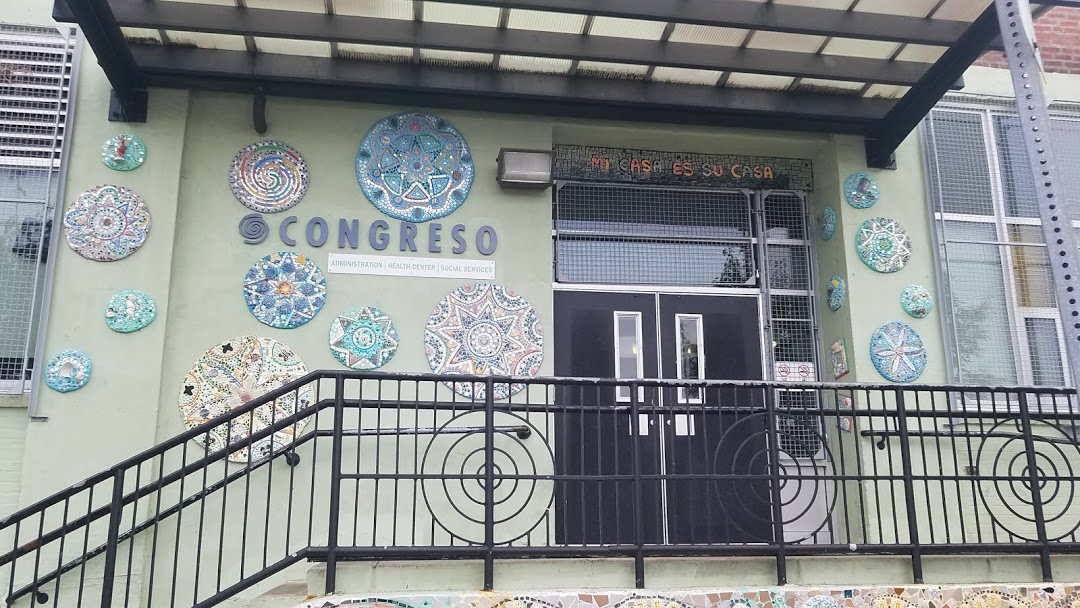
Congreso receives $200,000 as part of Family Recovery Funds grants
The North Philly-based Latino organization was among 90 grant recipients, distributed by the William Penn Foundation.
On June 17, the William Penn Foundation announced the distribution of 90 grants totaling more than $8 million to support local nonprofit organizations in Philadelphia.
The organizations selected to receive the grant were largely focused on families’ basic needs and children’s education, as the COVID-19 pandemic continues to have an impact.
“After a year of virtual schooling, children must come first this summer. Their needs, educational experiences, and playful learning opportunities are essential to Philadelphia’s recovery,” said Janet Haas, M.D., board chair of the William Penn Foundation, in a press release.
The grants were awarded through the Family Recovery Fund, a one-year, $10 million initiative that supports direct grantmaking and matching funds to organizations working with families by providing access to healthy food, housing support and enhanced K-12 learning opportunities.
Among the organizations chosen to receive a grant was Congreso de Latinos Unidos, which received two grants — $50,000 towards its youth programs, and $150,000 towards supporting its housing and rental assistance efforts.
“The funds support the advancement of Congreso’s Mission to Impact,” wrote Julia Rivera, Congreso’s vice president of external affairs & strategic initiatives, in an email.
The Mission to Impact (M2I) refers to the organization’s five pillars: education, workforce development, housing, health and parenting.
The housing grant will help support Congreso’s efforts addressing housing needs by providing low barrier access flexible rental assistance to households not typically eligible for traditional HUD-funded rental assistance, but are still experiencing housing instability.
Congreso anticipates being able to serve 50 households with these grant funds, as well as support an intake specialist tasked with supporting the rental assistance program by connecting clients receiving much-needed housing assistance to Congreso’s many other available services and programs.
“Latinos in Philadelphia experience the ‘Latino homeless paradox’ as they are more likely to live in poverty but, due to cultural or language barriers, less likely to stay in shelters,” wrote Rivera. “Congreso’s culturally appreciative services are uniquely suited to engage homeless and housing insecure Latino families, creating equitable access to crucial supports for a hard-to-reach population.”
Rivera noted that since Oct. 2020, Congreso has had 1,121 individuals reach out to the Housing Services department for rental assistance, numbers likely enhanced due to the COVID-19 pandemic.
The pandemic has also greatly impacted students.
A June 2020 report from McKinsey & Company looks at various scenarios of schooling and details how it may impact students. The report says all schools have fared worse in reading and math over the last year, but schools with high percentages of students of color have fallen further behind than schools with majority White student populations.
RELATED CONTENT
While the city and School District of Philadelphia has made efforts to help students of color make gains in computer and internet access since the start of the pandemic, they will trail White students.
The grant funds will go towards expanding and increasing support for its youth programs, while providing additional resources that will train staff to implement new techniques that will maximize the quality of its activities and programs.
“Students in Congreso’s community have experienced disproportionately negative impacts from the COVID-19 pandemic, and our OST [out-of-school-time] programs help students regain their academic footing,” wrote Rivera.
With support from the education grant, Congreso will be able to increase its academic and tutoring support, strengthen summer enrichment activities and deliver events that maximize academic engagement and learning for students in its K-12 programs.
“The additional activities funded through the education grant will allow us to complement our existing pandemic supports for students and families, like computer and internet access and emotional supports, to holistically engage students in STEAM [science, technology, engineering, art and mathematics] learning that leads to academic success,” wrote Rivera.
In addition, the grant will be critical in enhancing Congreso’s Children and Youth programs, which aims to prepare students for high school selection and post-secondary planning with a particular emphasis on STEM education.
Specifically, it will help support the solicitation of state-of-the-art supplies, such as robotic and coding kits, and allow the organization to bring renowned STEM professionals to the program to offer specialized workshops for those students.
Later this year, the Family Recovery Fund will further its efforts by providing additional support through grantmaking in job training and workforce development.
“Through this process, we sought to place greater emphasis on organizations that reflect and engage the communities they serve,” said Haas.
A full list of the Family Recovery Fund grant recipients can be found here.











LEAVE A COMMENT: